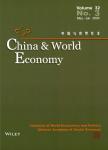Trade Balance: Numbers Can be Deceiving
Trade Balance: Numbers Can be Deceiving作者机构:Senior Economic Affairs Officer United Nations Conference on Trade and Development (UNCTAD)
出 版 物:《China & World Economy》 (中国与世界经济(英文版))
年 卷 期:2006年第14卷第3期
页 面:54-70页
核心收录:
学科分类:0202[经济学-应用经济学] 02[经济学] 1202[管理学-工商管理] 0201[经济学-理论经济学] 020206[经济学-国际贸易学] 020105[经济学-世界经济] 0701[理学-数学]
主 题:affiliate sales global imbalances international production networks market access trade balance
摘 要:Trade disputes have become more prevalent and acute in recent years. Almost all center on bilateral trade balance and/or market access of certain merchandise or services. However, since at least the mid 1980s, affiliate sales have become a more direct and more powerful form of market access than the traditional cross-border commercial transactions for developed countries, whereas developing countries still rely predominantly on traditional trade. The importance of the international production supply chain is increasing with a bias against downstream producers. The current data collection and compilation system of trade balance can not reflect these changes in the world economic environment. It overstates exports of developing countries and understates their imports. None of the countries in the world can illustrate the weakness of the conventional system better than China.



